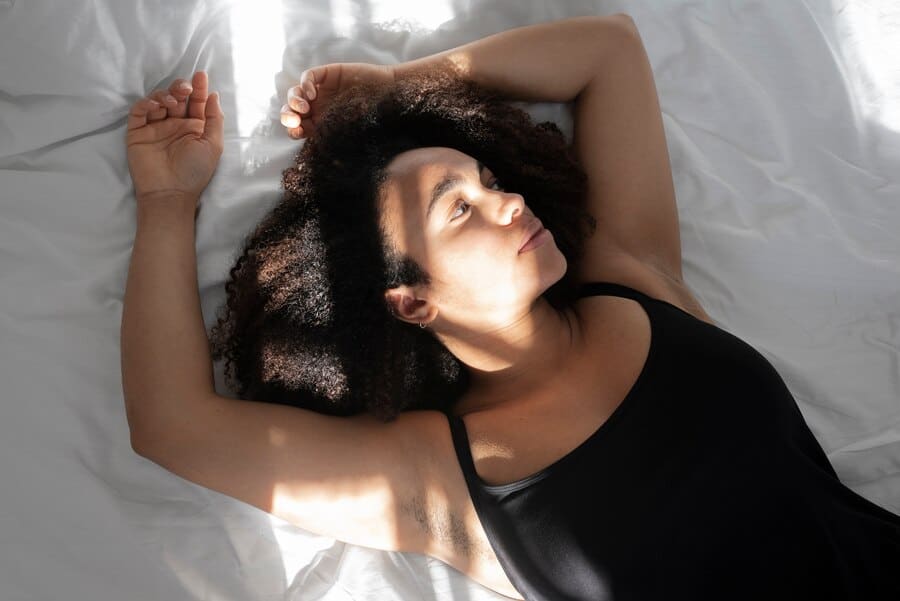
Boost Sleep Naturally: Tips to Enhance Quality
Did you know that around 35% of adults in the United States report insufficient sleep?
Lack of quality sleep can have a significant impact on your overall well-being and productivity.
If you’re struggling to get a good night’s rest, there are natural ways to enhance your sleep quality and wake up feeling refreshed and energized.
In this article, we’ll explore some effective tips and techniques for improving sleep naturally.
By making simple changes to your diet, lifestyle, and environment, you can optimize your sleep and enjoy the numerous benefits it offers. Let’s dive in!
Key Takeaways:
- Inadequate sleep affects a significant portion of adults in the United States.
- There are natural ways to enhance sleep quality and wake up refreshed.
- Simple changes to your diet, lifestyle, and environment can optimize your sleep.
- Improving sleep quality has numerous benefits, including increased well-being and productivity.
- Stay tuned for tips and techniques to boost your sleep naturally!
Increase Bright Light Exposure during the Day
One natural way to enhance sleep quality is by increasing your exposure to bright light during the day.
Daily sunlight or bright light exposure helps keep your circadian rhythm healthy, which in turn improves your energy levels during the day and promotes better sleep quality and duration at night.
Research studies have shown that bright light exposure during the day can also have a positive impact on reducing the time it takes to fall asleep.
By exposing yourself to bright light early in the day, you can help regulate your body’s internal clock and improve the synchronization of your sleep-wake cycle.
If getting daily sunlight exposure is not practical due to factors like weather conditions or lifestyle constraints, using artificial bright light devices or bulbs can be an effective alternative.
These devices emit a similar spectrum of light as natural sunlight and can help provide the necessary stimulation to keep your circadian rhythm in check.
Reduce Blue Light Exposure in the Evening
Blue light, emitted by electronic devices like smartphones and computers, can interfere with your circadian rhythm and disrupt sleep.
It’s essential to minimize your exposure to this type of light, especially in the evening, to promote better sleep quality.
To reduce nighttime blue light exposure, consider the following strategies:
- Wear blue light-blocking glasses: These glasses filter out the harmful blue light emitted by digital screens, allowing you to use your devices without negatively impacting your sleep.
- Use apps that filter blue light: Install applications or enable features on your devices that reduce blue light emission, such as Night Shift mode on iPhones or Night Light on Android devices.
- Avoid bright lights and screen time before bed: In the two hours leading up to bedtime, dim the lights in your home and avoid using electronic devices. Instead, engage in relaxing activities like reading or practicing mindfulness.
Implementing these measures can help minimize your exposure to blue light and signal to your body that it’s time to wind down and prepare for sleep.
By adopting these natural strategies, you can enhance your sleep quality and wake up feeling refreshed.
Don’t Consume Caffeine Late in the Day
Caffeine is a common stimulant found in coffee, tea, energy drinks, and chocolate.
While it can provide a much-needed energy boost during the day, consuming caffeine late in the day can negatively impact your sleep quality.
When you consume caffeine, it stimulates your central nervous system, making you feel more awake and alert.
To enhance your sleep quality naturally, it’s best to avoid consuming caffeine after 3-4 p.m. or at least 6 hours before you plan to go to bed.
This allows your body enough time to metabolize and eliminate the caffeine from your system, reducing its stimulating effects.
If you’re particularly sensitive to caffeine or find that it disrupts your sleep, consider opting for decaffeinated coffee or other non-caffeinated beverages in the late afternoon or evening.
This way, you can still enjoy a warm beverage without sacrificing your sleep quality.
Remember, improving your sleep quality is not just about the quantity of sleep you get but also the quality.
By avoiding caffeine late in the day, you can create a sleep-friendly environment that promotes restful and rejuvenating sleep.
The Sleep-Caffeine Connection
Research has shown that caffeine can delay the timing and lengthen the duration of your sleep.
Participants who consumed caffeine six hours before bedtime experienced reduced sleep duration, decreased sleep quality, and prolonged sleep latency (the time it takes to fall asleep).
“The evidence is clear that caffeine does influence sleep, and it’s important for individuals to be aware of its effects,” says Dr. Catherine Darley, sleep expert and clinical psychologist.
For some individuals, the effects of caffeine can be more pronounced, especially if they have difficulty metabolizing caffeine or are sensitive to its stimulating effects.
In these cases, avoiding caffeine late in the day becomes even more crucial for maintaining optimal sleep quality.
Alternative Beverages for Better Sleep
If you enjoy a warm beverage before bed, there are several caffeine-free alternatives that can promote better sleep quality:
- Herbal teas: Chamomile tea, valerian root tea, and lavender tea are known for their relaxation-inducing properties and can help prepare the body and mind for sleep.
- Warm milk: A classic remedy for sleeplessness, warm milk contains tryptophan, an amino acid that supports the production of serotonin and melatonin, hormones important for sleep regulation.
- Decaffeinated coffee: If you’re a coffee lover, opt for decaffeinated coffee instead. It provides the familiar taste and comforting ritual without the stimulating effects of caffeine.
By choosing these caffeine-free alternatives, you can still enjoy a soothing bedtime beverage without compromising your sleep quality.
Caffeine Content in Common Beverages |
Approximate Amount of Caffeine (mg) |
|---|---|
| Coffee (8 oz) | 95-165 |
| Tea (8 oz) | 20-70 |
| Soda (12 oz) | 30-50 |
| Energy drinks (8 oz) | 70-200+ |
Table: Caffeine Content in Common Beverages
Understanding the caffeine content in commonly consumed beverages can help you make informed choices and prioritize your sleep quality.
Optimize Your Bedroom Environment
Creating a restful environment in your bedroom is essential for enhancing the quality of your sleep.
By making a few simple adjustments, you can create a space that promotes relaxation and optimal sleep.
First, focus on keeping your bedroom cool, as a slightly lower temperature can help induce sleepiness.
Ensure that the room is dark by using room-darkening shades or curtains to block out any external light sources.
Darkness signals to your body that it’s time to sleep, promoting a natural sleep-wake cycle.
To further improve your sleep quality, minimize noise and distractions in your bedroom.
You can achieve this by using earplugs or employing a white noise machine to mask any disruptive sounds.
Lastly, make sure your bedroom is a comfortable and inviting space.
Investing in a supportive mattress and pillows that suit your preferences can greatly enhance your sleep quality.
Consider using scents or aromatherapy techniques, such as lavender oil, to create a calm and soothing atmosphere.
By optimizing your bedroom environment, you can create the ideal conditions for a restful and rejuvenating night’s sleep.
FAQ:
Boost Sleep Naturally: Tips to Enhance Quality
How can I naturally improve my sleep quality?
Making changes to your diet and lifestyle, increasing bright light exposure during the day, reducing blue light exposure in the evening, avoiding caffeine late in the day, and optimizing your bedroom environment can all help improve sleep quality naturally.
How does bright light exposure during the day enhance sleep quality?
Daily sunlight or bright light exposure during the day helps keep your circadian rhythm healthy, improving daytime energy and nighttime sleep quality and duration.
How can I reduce blue light exposure in the evening?
You can reduce nighttime blue light exposure by wearing blue light-blocking glasses, using apps that filter blue light on devices, and avoiding bright lights and screen time in the two hours before bed.
Why should I avoid consuming caffeine late in the day?
Caffeine is a stimulant that can interfere with sleep when consumed late in the day.
Opting for decaffeinated coffee or other non-caffeinated beverages in the late afternoon or evening can help promote better sleep quality.
How can I optimize my bedroom environment for better sleep?
Creating a restful environment in your bedroom can contribute to better sleep quality.
This includes keeping the room cool, dark, and quiet, using room-darkening shades and earplugs if needed, and minimizing external noise and light.








